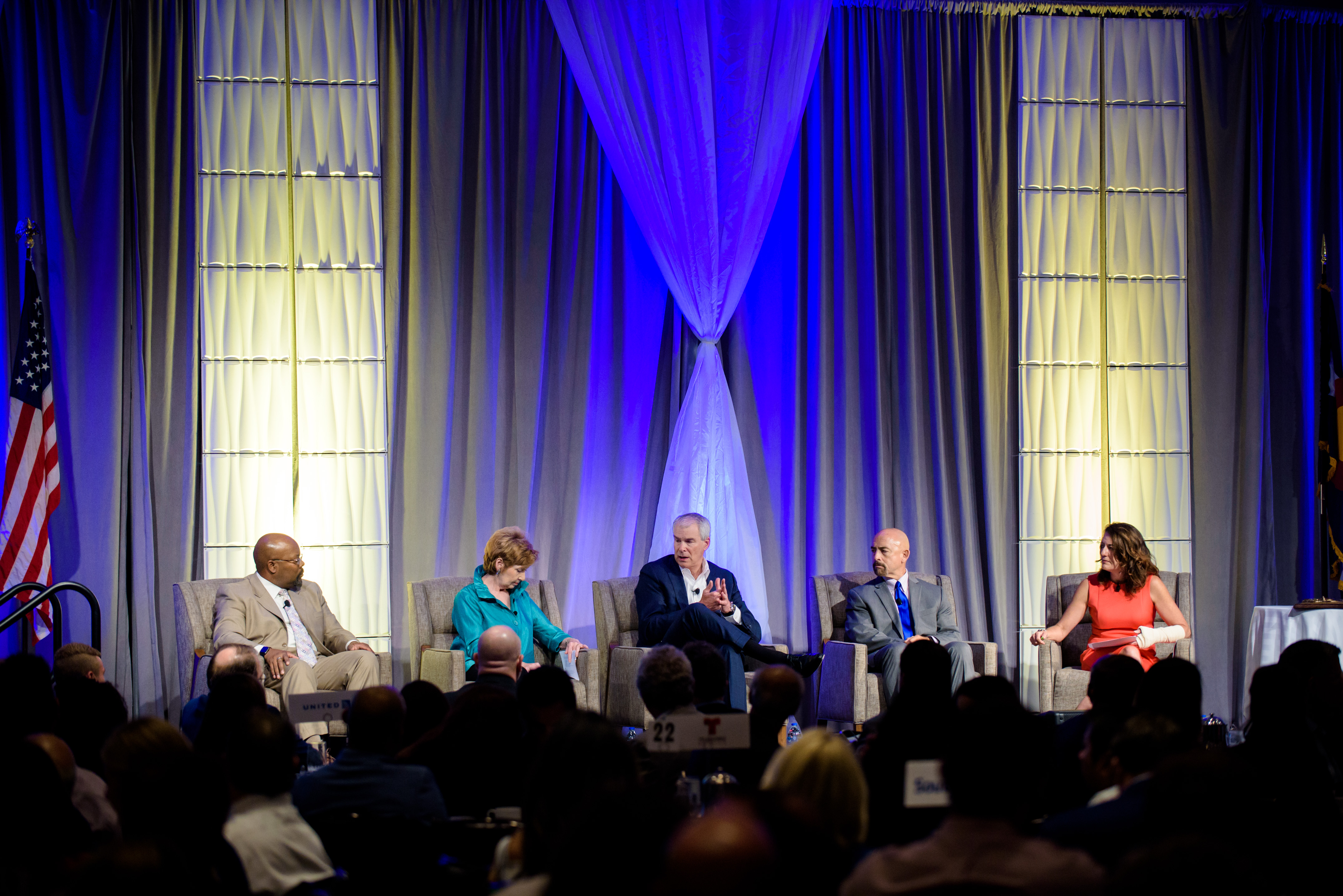
By Joe Garcia and Phil Kalin
The lines between the classroom and the workplace are blurring. And rightly so, considering that 85 percent of jobs that will exist in 2030 haven’t been invented yet. With that level of breakneck change and the stunning reality that 74 percent of Colorado’s jobs will require a post-secondary credential in just two years, now is the time to work together to protect our future economic success.
We know with numbers like these it is no longer just a school’s job to educate, nor is it just a business owner’s job to train an employee. While the jobs of tomorrow may not be clear, what is clear are the kinds of skills our workforce will need to be successful – critical thinking, adaptability and working collaboratively – coupled with the ability to take on new hard skills to pivot to those careers when the time comes.
Last week we discussed what that education of our workforce will look like with business and community leaders at the Denver Metro Chamber of Commerce’s State of the City. Our message was clear: Business and education leaders must partner and collaborate closely, because what we’ve already seen come out of these partnerships is increased opportunity for all.
Pinnacol Assurance has taken on more than 30 apprentices through a partnership with CareerWise Colorado – more than any other employer in the state that is working with this modern approach to traditional apprenticeship learning. Those apprentices work in a variety of roles, from marketing to accounting. The students earn while they learn, balancing time between the workplace and classroom, receiving up to 40 hours debt-free college credit and making up to $15 per hour. One year into this three-year program, Pinnacol is already seeing strong ROI, and also understands that long-term this investment helps fuel a pipeline of workers ready for the job who understand the culture of the organization.
Schools that partner with businesses have recognized the important shift in how we learn and work. It’s making educators more nimble and it’s equipping students to likewise be nimble, curious life-long learners – the kind of skills critical to future success. For decades, community colleges and universities have partnered with the private sector, and those partnerships are becoming increasingly important today.
For example, a recent partnership between Arapahoe Community College and Centura Health has led to the creation of a paid, six-month apprenticeship for a dozen medical assistant students. The program’s on-site and hands-on laboratory components, facilitated by Centura supervisors, will give these students a competitive advantage prior to taking their national certification exam and a direct path to becoming full-time employees with the hospital.
Only 18 of every 100 Colorado students will graduate from high school, complete their degree or certificate and immediately start a job, according to the Colorado Talent Pipeline Report. What happens to the others? We must recognize this important population and the hard work ahead to improve outcomes for their success in education, our workforce and their quality of life.
Meanwhile, we know many jobs are going unfilled. And with an all-time low unemployment rate, it’s all hands on deck to ensure Coloradans have access to education and relevant training opportunities to thrive in our growing economy.
Whether through a commitment like an apprenticeship program or other opportunities such as job shadowing, office tours and internships, we urge more businesses and educators to partner. We are stronger together, and we’ll build a stronger Colorado when we work together.
Joe Garcia is the President of the Colorado Community College System (CCCS), providing leadership, advocacy and support to the state’s largest system of higher education, which serves 137,000 students annually at 13 colleges and 40 locations across Colorado. Prior to his role at CCCS, Garcia served as president of the Western Interstate Commission for Higher Education, and from 2011 to 2016 was lieutenant governor of Colorado and executive director of the Colorado Department of Higher Education.
Phil Kalin is the president and CEO of Pinnacol Assurance, Colorado’s leading workers’ compensation insurer. Kalin is a national expert on topics related to health care, insurance, data analytics, technology innovation, cost improvement and risk mitigation.
